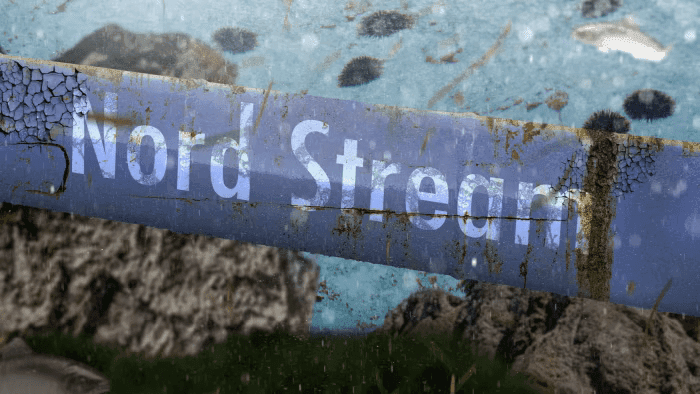The European Union has approved a new, 18th round of sanctions against Russia, once again focusing on Moscow’s key sources of income — the energy sector and oil exports. Among the most striking measures is a formal ban on using the Nord Stream gas pipelines and a reduction in the G7 oil price cap for Russian crude.
According to The Financial Times, Brussels is seeking to tighten the economic noose around the Kremlin as peace talks remain stalled and the war in Ukraine continues. The latest package, set to be officially signed off by EU ministers on Friday, includes:
- A complete ban on the use of the Nord Stream 1 and 2 pipelines linking Russia and Germany. While the pipelines have been inactive since the 2022 explosions, this measure now legally blocks their future use.
- A reduction of the G7 oil price cap on Russian crude from $60 to $47.6 per barrel, placing it about 15% below the average market price of Russian oil.
- A ban on imports of refined petroleum products made in third countries using Russian crude — a move designed to close loopholes that allowed Russian oil to enter markets under the guise of being “processed”.
- Additional export restrictions targeting sensitive goods, including dual-use technologies.
The price cap mechanism, introduced by the EU and G7 allies in late 2022 following Russia’s full-scale invasion of Ukraine, allows companies from participating countries to transport and insure Russian oil only if it is sold below the set ceiling. Until now, efforts to further reduce the cap had struggled to gain unanimous support within the G7 due to concerns over global market stability. That resistance appears to have weakened.
Speaking on social media platform X, EU foreign policy chief Kaja Kallas said the new sanctions package was “one of the strongest” ever approved by the bloc.
“We will keep raising the costs, so stopping the aggression becomes the only path forward for Moscow,” she declared.
Since the war began, the EU has now implemented 18 packages of sanctions, targeting banking, trade, energy, technology, and thousands of Russian individuals and entities. The new measures make it clear that Europe is sticking to a long-term strategy of economic strangulation.
According to The Financial Times, sanctions targeting energy exports are particularly sensitive, as oil and gas remain the Kremlin’s main sources of foreign currency revenue. Despite pivoting toward China and India, Russia is increasingly dependent on shadow networks, convoluted logistics, and heavy discounts — a setup that makes its economy more vulnerable over time.
The EU also hopes that shutting down circumvention routes — such as refining Russian crude in third countries — will undermine Moscow’s backdoor export strategies and further slash income from disguised energy sales.
This article was prepared based on materials published by The Financial Times. The author does not claim authorship of the original text but presents their interpretation of the content for informational purposes.
The original article can be found at the following link: The Financial Times.
All rights to the original text belong to The Financial Times.
















